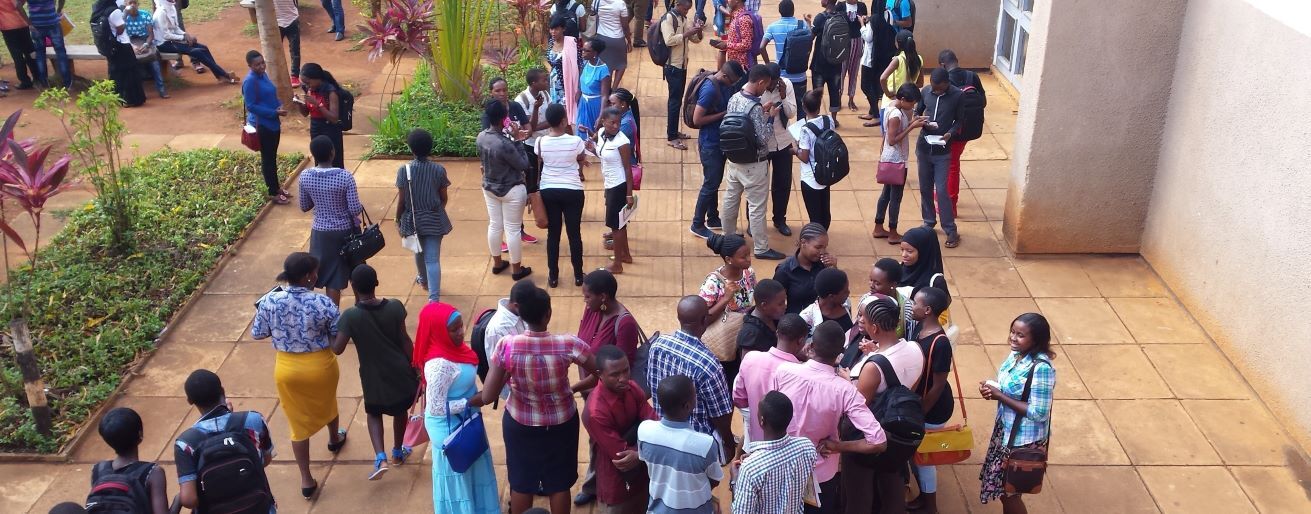
Beyond islands of good teaching to achieve change at scale
Over the last few years, INASP and partners in East Africa have been working together to rethink how universities can provide more relevant teaching and more engaging learning, to equip their students to succeed in an uncertain world.
An insufficient focus on critical thinking, problem solving and other 21st century skills and competencies is a major constraint, as are the barriers to learning faced by young women. Tackling these issues requires us not only to rethink pedagogies and redesign courses, but to build stronger connections with communities and businesses and to engage them in efforts to prepare the next generation.
Careful work, impressive results
Through more than four years of careful work, we have achieved some impressive results – four universities – Uganda Martyrs, Gulu, Mzumbe and Dodoma – guided 565 lecturers through a “transformative learning” process, assisting them to redesign 212 courses across 35 degree programmes in more than 100 departments, and revising nearly 40 policies and process guidelines to embed deeper change in their institutions. And most importantly, 3,800 students benefited from better teaching.
- 94% of lecturers believed the new approaches were more effective and enabled them to develop more relevant courses and more learner-centred teaching and assessment.
- Their use of critical thinking and problem-solving techniques increased by 43 percent, and their use of active learning strategies by 37 percent.
- 87% of students rated their learning experience as positive, recognising their own agency and becoming more engaged in their learning.
- Joint Advisory Groups, which brought community, public and private sector representatives into the process, helped universities to re-envision their teaching and to better understand the challenges of graduate employability.
- Both academics and students made pronounced shifts in their attitudes towards gender – academics’ use of gender-responsive pedagogies increased by 45 percent and we saw positive changes in students’ behaviours and attitudes.
Read more about what we achieved and what we learnt in this synthesis learning paper.
Achieving change at scale
From the beginning, though, we were clear: while driving change in four universities was significant, it wasn’t enough. Our success would depend on our ability to consolidate what we learnt and the expertise we developed, and to provide tools and resources that would assist more universities to work with more academics to reach many thousands more students. In short, to move beyond islands of good teaching and to bring about change at scale.
In March 2022 we launched ‘Transforming Higher Education for Social Change: a model from East Africa’, publishing our methodology as a series of open access toolkits and case studies on a dedicated site – www.transformHE.org.
Since then the conversations have gathered pace. For example, using TESCEA’s approach to gender-responsive pedagogy, we have supported, academics in the PEBL West Africa team to explore gender in their own teaching and learning. The partnership has presented the model in a variety of fora – including the Education Collaborative ; USAID’s HE summit, as well as exploring the education ecosystem that think tanks need, and at the Lauder Africa Futures conference.
New energy in East Africa
But perhaps most importantly, TESCEA has been discussed with African regional organisations and higher education agencies, and in dozens if not hundreds of conversations with colleagues and universities across the region. One especially energising development has been a series of discussions with East Africa’s regional higher education agency, the Inter-University Council for East Africa (IUCEA). Together we hope to launch a new partnership to take the TESCEA approach to scale.
In the process we have identified a clear path forward. TESCEA proved that it is possible to make clear improvements to the quality and relevance of student learning, and to build new types of relationships with the employers and communities that graduates will go on to work with and in.
Furthermore, TESCEA also showed us that we need to understand local economic ecosystems much better. In economies with few opportunities for formal, professional employment many graduates will need to become creators of economic activity and employment – through their own entrepreneurial ventures and working with smaller local businesses. That will not simply be achieved by a new module or course in entrepreneurship, it will require new partnerships, which invite communities and business into universities, and encourage academics and students to venture out.
Plans for the future
In TESCEA’s next phase we plan to:
- Build our evidence base and learn more about graduate outcomes through a longer-term longitudinal evaluation process.
- Strengthen our understanding of employability and entrepreneurship, including pathways in the informal and formal sector, graduate entrepreneurship ecosystems, practice-based curricula, and exploring the influence of financial services, investors, governments, and national and regional strategies.
- Expand and deepen community-engaged learning for innovation by fostering new connections with government, regulators, and the private sector, enabling universities to support local innovators and stimulate new employment opportunities.
- Deepen the focus on inclusive learning and gender-responsive pedagogy by ensuring that academics and leaders have the confidence and expertise to change learning cultures, and to ensure that all students thrive.
- Strengthen the focus on digital and blended learning, to equip academics to make use of new technologies and tools, and to enhance inclusivity and cost-effectiveness for students.
- Connect academics from across institutions in a lively learning community, through both in-person and digital spaces, to share expertise and knowledge and support and mentor each other.
For more information about TESCEA’s ambitions for African higher education, email Jon Harle.

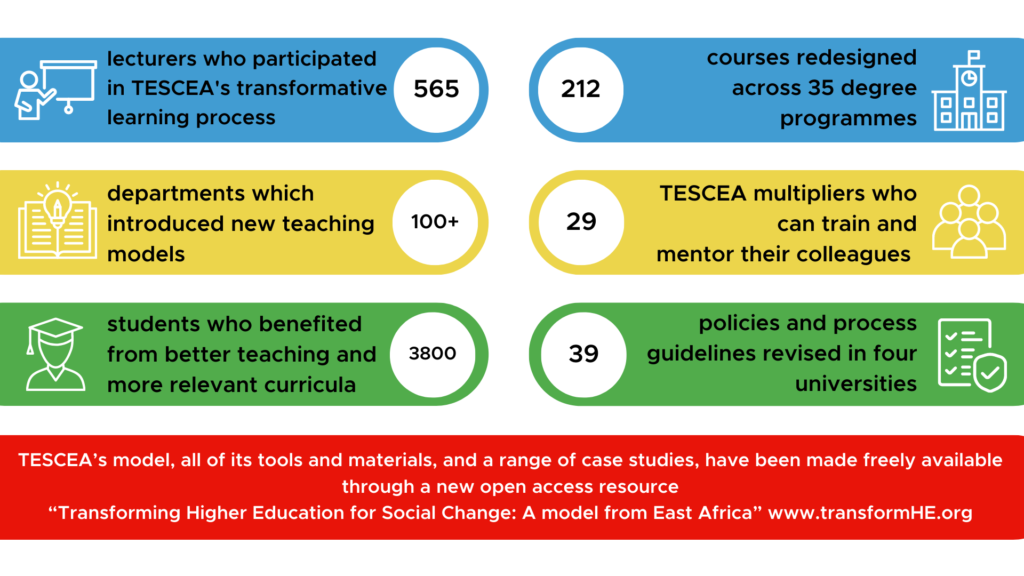
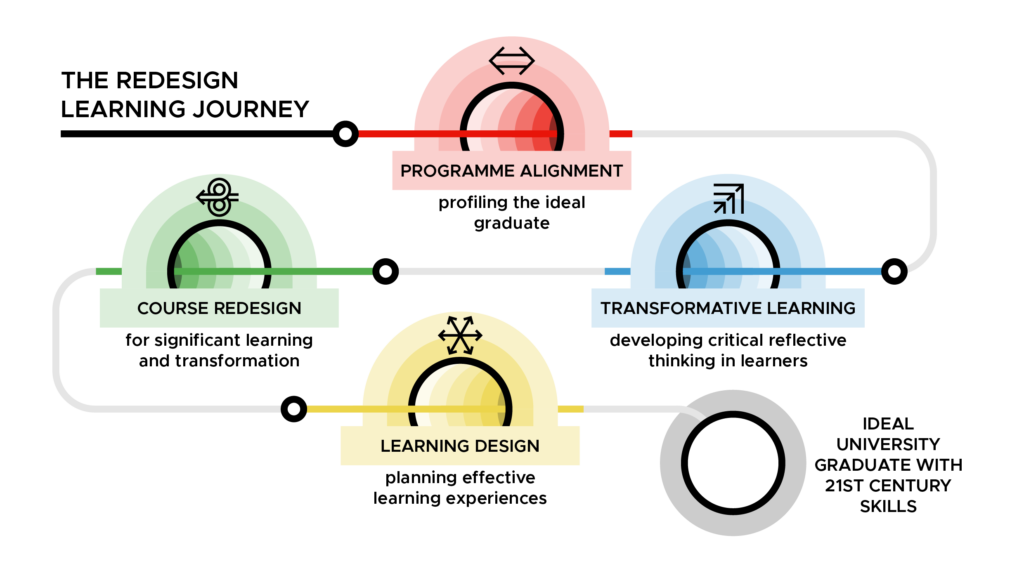
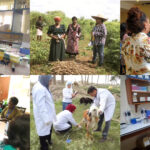 Previous Post
Previous Post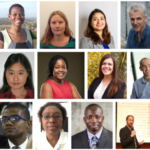 Next Post
Next Post


